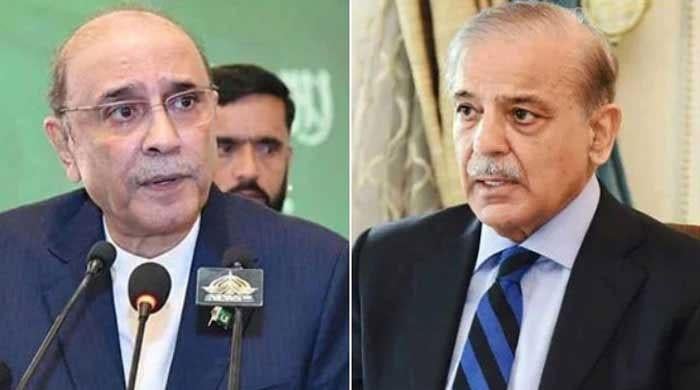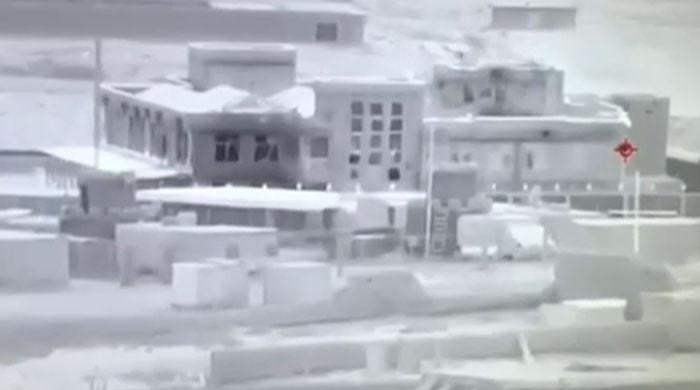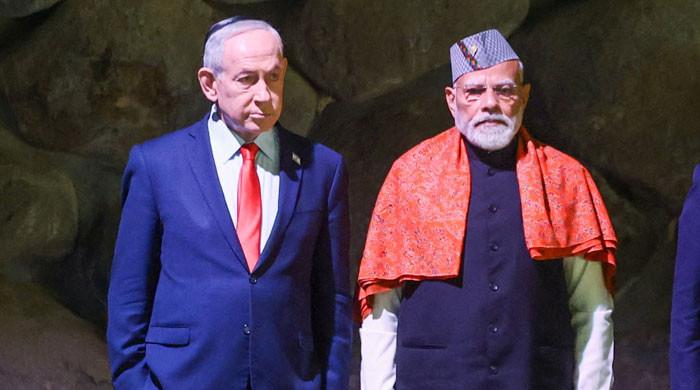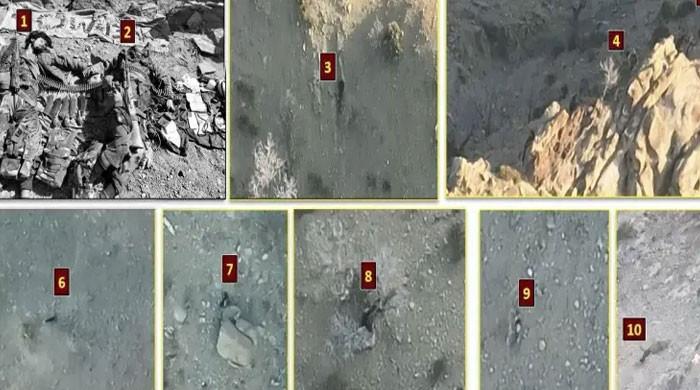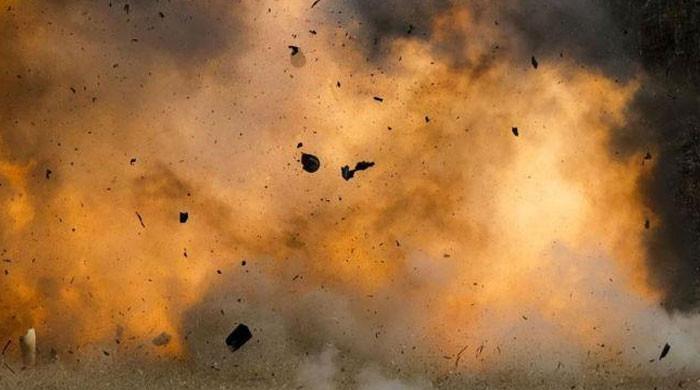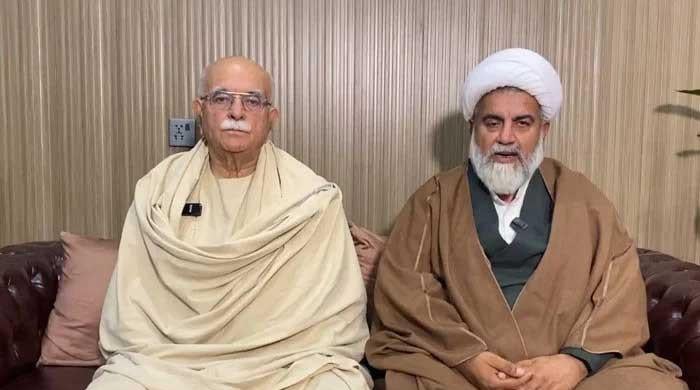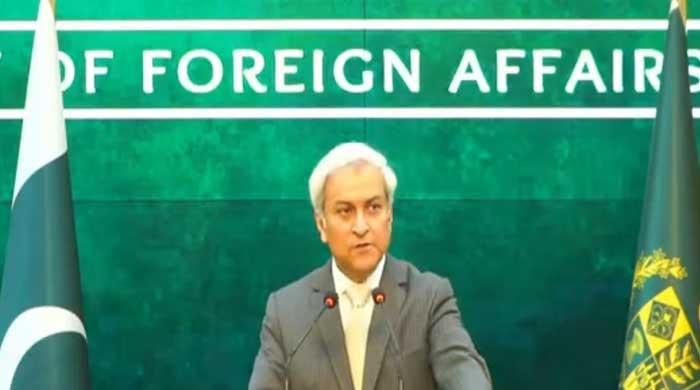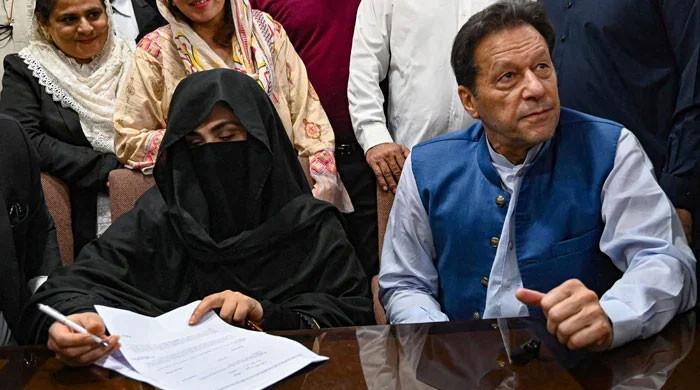US appreciates Pakistan’s steps against JeM, LeT: Senior US official
A senior US administration official speaks to Geo.tv about India’s decision to revoke Kashmir’s special status, improved Pak-US ties and the possibility of the US president visiting Pakistan
August 22, 2019
Pakistan has taken some steps to assist with the peace process in Afghanistan, says a senior United States (US) official, adding that Washington also appreciates the additional steps Pakistan has already taken against Jaish-e-Mohammad (JeM) and Lashkar-e-Taiba (LeT).
Speaking exclusively to Geo.tv, the senior US administration official, who asked not to be named, called Prime Minister Imran Khan’s July visit to the White House “a successful visit.”
“We are happy to have overcome some of the differences relating to diplomatic travel in both countries that led to the lifting of the travel restrictions on Pakistani diplomats,” the official said.
“The two sides also agreed to see what they can do to expand economic and trade ties. The US certainly wants to open the door to better relations, but we also have a number of security-related requests of Pakistan. The extent to which Pakistan responds to these requests will inform how we move forward with the relationship. Pakistan has taken some steps to assist with the peace process in Afghanistan. The United States is looking for additional assistance from Pakistan to move the peace process forward and which would help create a more peaceful South Asia. We appreciate the additional steps Pakistan has already taken against Jaish-e-Mohammad (JeM) and Lashkar-e-Taiba (LeT), and we would like to continue the positive momentum which was started by PM Khan’s visit to the White House.”
When asked how Washington’s views the counter-terrorism steps Pakistan has taken in the recent year, the senior administration official told Geo.tv, “We certainly appreciate Pakistan’s initial effort against militants, but Pakistan will have to do more to prevent terrorism in the region. We are calling on Pakistan to take additional steps against groups like JeM and LeT and prevent them from operating within Pakistan’s territory. We would welcome prosecutions of terrorists, which would demonstrate Pakistan is committed to irreversible steps against these groups. Our requests are in line with what has been stated by Prime Minister Khan in terms of improving the socio-economic prospects of Pakistan. Also, we are urging Pakistan to fully complete its FATF obligations to prevent terrorist groups from operating, and fundraising, inside Pakistan, which is line with Pakistan’s own National Action Plan.”
Since meeting Pakistani Prime Minister Imran Khan in July, US President Donald J. Trump has offered, twice, to mediate on Kashmir. Was there ever a serious possibility of the Unites States negotiating between the two countries?
The official said that the “President made clear that the United States is ready to assist if requested by both India and Pakistan. However, India has not requested any mediation. We believe that the foundation for any successful dialogue between India and Pakistan is based on Pakistan taking sustained and irreversible steps against militants and terrorists on Pakistani territory. We think these actions are in line with Prime Minister Khan’s commitments and international obligations, including Pakistan’s commitment to the Financial Action Task Force (FATF). Also, let this be clearly stated that the Indian government did not consult or inform the US government before moving to revoke Jammu and Kashmir’s special status. There were no forewarnings by the Indian government.”
About the Indian government’s decision to revoke article 370, which granted special constitutional status to Indian-administered Kashmir and the subsequent fall out of that decision, the US official explained that Washington is “closely following the events in Kashmir and is engaged with officials in both countries.”
“The United States continues to encourage peace, stability and respect for individual rights. We are also encouraging India and Pakistan to engage with each other and to have constructive dialogue. However, we are concerned about reports of detentions inside Jammu and Kashmir, as well as the communication blackout in the valley. We are urging the Indian government to respect individual rights and to hold discussions with the local community. Also, we are calling for the release of detained political figures, restoration of communication and the freedom of movement for the people of Jammu and Kashmir.”
About raising the Kashmir’s issue in the United Nations, the official said that “members of the Security Council have voiced support for India and Pakistan to settle their issues through peaceful means and direct dialogue. The members have also called on the two countries to avoid action which can further escalate the situation, particularly near the Line of Control (LoC). Kashmir is a bilateral issue between India and Pakistan. Dialogue between the two countries is the best way to resolve their differences.”
Commenting on the detention of LeT leader Hafiz Muhammad Saeed, the official said that the Trump administration “appreciates Pakistan’s pledges to freeze assets of terrorist leaders. But we are still looking for follow through on these steps. While Saeed has been arrested, he has been arrested several times in the past as well. We are looking for something that shows that Pakistan is serious about reining in this group, which includes charging and then prosecuting members. Otherwise, we have seen this movie before of catching and arresting militant leaders only to have them released a few months later when international pressure eases.”
In the first six months of 2019, Pakistan’s trade with the United States fell by 8.17 per cent, compared to the same period last year, according to the US Census Bureau. How can the two countries expand their trade ties? This, explained the official, was a “major focus of discussion between President Trump and Prime Minister Khan. It was in fact a key interest. The US Commerce Secretary Wilbur Ross participated in these discussions in the White House. He was asked by the president to look for ways to improve trade ties between the two countries. We are looking at the possibility of a high-level trade delegation visiting Pakistan in the future, for cooperation in areas such as LNG, and the export of US equipment for energy markets in Pakistan, as well as in the agriculture sector. There are many areas that are ripe for expanding trade. One area we are working on with Pakistan is to promote women’s economic empowerment opportunities. It’s worth noting that improved India-Pakistan relations will open up further trade and economic opportunities for Pakistan.”
Pakistan's Foreign Minister Shah Mehmood Qureshi has said that U.S. President has accepted Prime Minister Imran Khan's invitation to visit Pakistan. When asked if there was a possibility of the U.S. president visiting Pakistan before the end of this year, the official stated: “We don’t comment on the president’s schedule. Prime Minister Khan did extend an invitation when he visited the White House in July, which was acknowledged by President Trump.”




